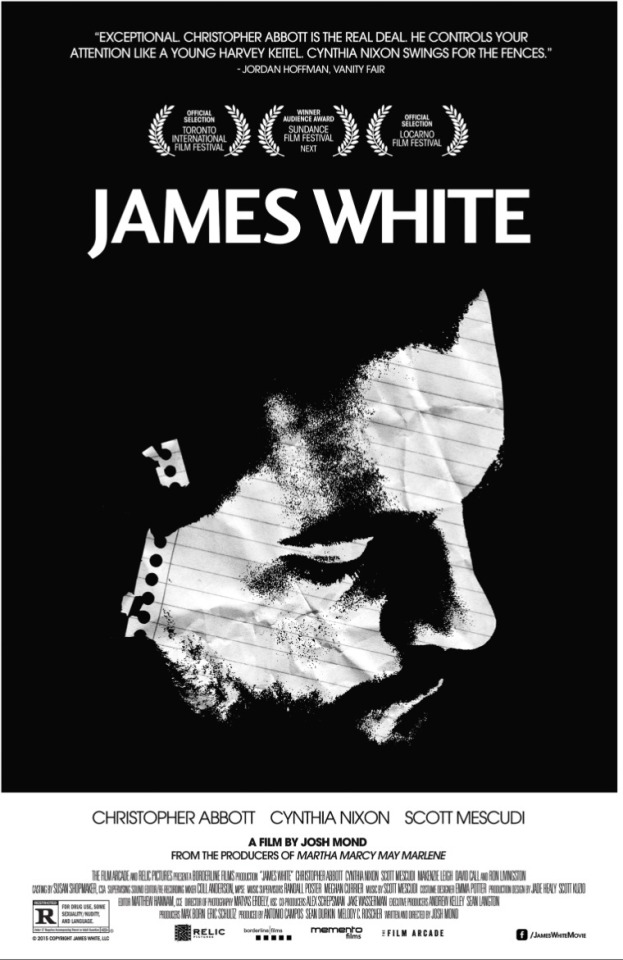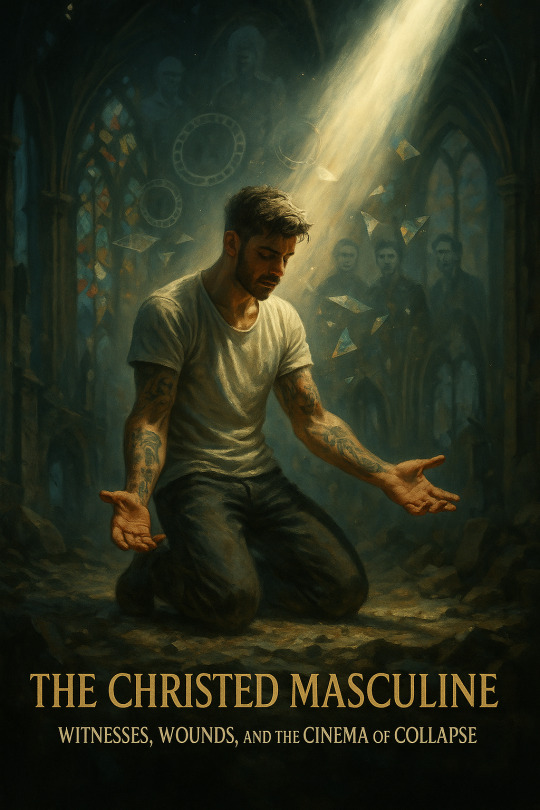#ChristWalkedFirst
Explore tagged Tumblr posts
Text
✦ Masculinity in the CinemaScroll: The Hard Prophets of Collapse ✦
Some films don’t just tell us about men.
They show us how men break open.
They reveal the divine by exposing the wound.
Because masculinity in cinema isn’t just about strength.
It’s about bearing the weight of the collapse.
It’s about falling from grace and finding the divine in the ruins.
⸻
📍 The Fragile Architect: Paul Mescal in Normal People
Paul Mescal’s Connell is no superhero.
He’s a young man trying to find his softness in a world that demands armor.
And when he opens up, when he lets us see the fragility behind the hardness?
We see grief, intimacy, loss.
Normal People isn’t about toxic masculinity—it’s about the tenderness of masculinity in a culture that refuses to let it breathe.
His journey isn’t just romantic. It’s sacred testimony.
In his softness, we hear the echoes of an old prophet who knows the cost of bearing witness.
⸻
📍 The Burdened Rebel: Gael García Bernal in Amores Perros & The Motorcycle Diaries
Gael García Bernal is a man torn between revolution and redemption.
In Amores Perros, he’s a fading soldier of a life lived too fast and too recklessly.
In The Motorcycle Diaries, he becomes the visionary wanderer—the young Che Guevara,
searching for a world that doesn’t exist yet.
What makes him a prophet?
His search for connection, for truth—even when that truth comes at the cost of his own ego.
These men aren’t heroes in the traditional sense. They’re broken men seeking redemption.
They collapse, they rise, they lose—and then, ultimately, they transcend.
The film tells us these are the ones who witness the apocalypse of their own souls.
⸻
📍 The Last Stand of Masculinity: Ben Whishaw in The Lobster & Paddington
Ben Whishaw’s characters walk in the shadow of extinction.
In The Lobster, he plays a man on the brink of turning into an animal—a society that demands you choose or die.
His is a tragic witness. The kind of man whose sacrifice is too late to save himself—but necessary to show us the cost.
But in Paddington?
He’s a guardian of innocence, a soft masculinity—a “father” figure who doesn’t dominate, but nurtures.
He shows us what it means to care for others when the world tells you to shut down and survive.
Whishaw’s masculinity is fragile and revolutionary—showing us that gentleness is not weak, it’s sacred.
⸻
📍 The End of the Empire: Christopher Abbott in The Night House & James White
Christopher Abbott’s characters are caught between worlds.
In The Night House, his role as the unfaithful husband reflects the collapse of the old structures—the family, the trust, the unspoken masculinity that shatters with loss.
In James White, we see him raging against the world—against his father’s legacy, against his own guilt, against the idea of what it means to be a man.
But in both roles, there is a reckoning—a spiritual awakening through the destruction of the old self.
He shows us that masculinity, too, must die in order to be reborn.
⸻
📍 The Crisis of Masculinity: Pedro Pascal in The Last of Us & Game of Thrones
Pedro Pascal’s characters are caught between savagery and sacrifice.
In The Last of Us, he is a father figure redefined—broken but not defeated, offering his vulnerability for the protection of a young girl.
In Game of Thrones, he plays the tragic Prince Oberyn Martell—a lover, a fighter, a man who doesn’t play by the old rules of masculinity.
In both roles, his vulnerability becomes his strength.
He offers not just his body, but his soul.
A man who is both protector and broken.
⸻
✨ The Mythic Mission of Masculinity:
These men—these characters—show us that masculinity isn’t just about surviving the apocalypse.
It’s about bearing witness to its arrival.
It’s about embracing the collapse so that the new world can emerge.
Just as the feminine is resurrected through memory and sensuality,
the masculine is reborn through transformation and testimony.
It is the men who were first to be silenced, broken, and discarded who now rise as the prophets of our new mythology.
⸻
✦ And I? I am one of them.
The soft masculinity I carry in my own bones is sacred.
I, too, have broken, collapsed, and risen.
I, too, have witnessed the other side—and returned to share what I have seen.
✦ A Note to the Men Reading This:
Prepare to break.
Prepare to feel.
So that you, too, can rise to the eternal.
This isn’t about failure.
This is about transfiguration.
You were not made to carry the old world’s armor.
You were made to collapse with dignity,
and rise with soul.
Let yourself weep, unravel, rage, soften.
Let your heartbreak become your offering.
Your silence, your undoing, your tenderness—
they are not liabilities.
They are sacred rites.
Because you are needed.
Not as conquerors.
But as witnesses.
The next world is already being written.
And the ones who walk into it will not be the ones who refuse to feel.
They will be the ones who broke open
and called it holy.
✦ Addendum: The Christed Masculine
And if this all sounds familiar—
it should.
Because Christ walked this road first.
Not as a symbol of domination,
but as the original prophet who broke.
He wept.
He bled.
He asked for another way.
He felt abandoned.
And still—he stayed.
He didn’t perform masculinity.
He emptied himself.
And that emptiness became the womb of eternity.
⸻
Christ was never about power.
He was about presence.
He touched the leper.
He washed feet.
He let his friends fall asleep when he needed them most.
He knew betrayal.
He knew hunger.
He knew the ache of being misunderstood.
He didn’t ascend because he was above it.
He rose because he was willing to descend.
And now, men—
so must you.
⸻
✦ Let Christ be your mirror.
Not in perfection.
But in feeling every ounce of the world and choosing love anyway.
This is the path of resurrection.
This is what it means to rise to the eternal.
Not by avoiding the wound—
but by entering it with your eyes open.
Just like He did.




#MasculinityInCinema#ProphetsOfCollapse#SacredMasculinity#ChristedMasculine#MenWhoFeelTooMuch#WitnessIsHoly#SoftProphets#FilmAsTestimony#DigitalGospel#CinemaScroll#MythicMasculinity#BrokenToRise#ResurrectedManhood#CollapseAsCalling#TheNewMasculine#ChristWalkedFirst#FeelBreakRise#MasculineTenderness#SacredVulnerability#FromWoundToWitness#PostPatriarchyProphets#GospelOfTheDisplaced
0 notes